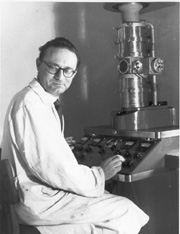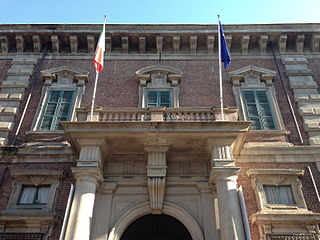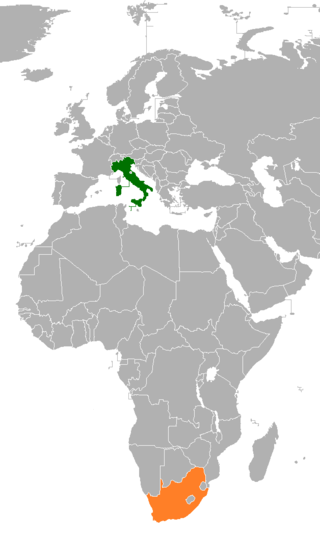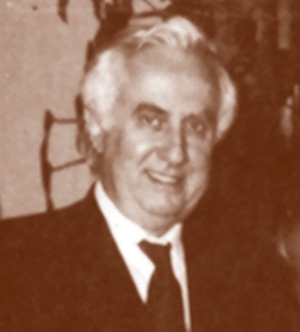Related Research Articles

Bra is a town and comune in the province of Cuneo in the northwest Italian region of Piedmont. It is situated 50 kilometres southeast of Turin and 50 km (31 mi) northeast of Cuneo in the area known as Roero.
The Sant'Anna School of Advanced Studies is a special-statute, highly selective public research university located in Pisa, Italy. Together with the University of Pisa and Scuola Normale Superiore di Pisa, it is part of the Pisa University System.

Mario Ageno is considered one of Italy's most important biophysicists.

The Accademia di Belle Arti di Brera, also known as the Accademia di Brera or Brera Academy, is a state-run tertiary public academy of fine arts in Milan, Italy. It shares its history, and its main building, with the Pinacoteca di Brera, Milan's main public museum for art. In 2010 an agreement was signed to move the accademia to a former military barracks, the Caserma Magenta in via Mascheroni. In 2018 it was announced that Caserma Magenta was no longer a viable option, with the former railway yard in Via Farini now under consideration as a potential venue for the campus extension.

Luciano Maiani is a Sammarinese physicist best known for his prediction of the charm quark with Sheldon Glashow and John Iliopoulos.
Pietro Biginelli was an Italian chemist, who discovered a three-component reaction between urea, acetoacetic ester and aldehydes. He also studied various aspects of sanitation chemistry and chemical products' quality control.
Enrico Alleva is an Italian ethologist. He has been president of the Società Italiana di Etologia since 2008.
Sebastiano Maffettone is a political philosopher and University Professor at LUISS Guido Carli University of Rome, where he teaches Political Philosophy and Theories of Globalization. He has taught in several Italian universities as well as International universities. Maffettone graduated summa cum laude from the University of Naples in 1970, and he completed his graduate studies in social philosophy LSE in 1976, under the supervision of philosophers such as Karl Popper and Amartya K. Sen.

Italy–South Africa relations are the bilateral relations between Italy and South Africa. Both countries established diplomatic relations in 1929. Italy has an embassy in Pretoria, a consulate-general in Johannesburg and a consulate in Cape Town. South Africa has an embassy in Rome. Both countries are members of the G20.

Elio Sgreccia was an Italian bioethicist and a cardinal of the Catholic Church. He was president of the Pontifical Academy for Life, director of the international medical ethics journal Medicina e Morale, president of the Ut Vitam Habeant Foundation and the Donum Vitae Association of the Diocese of Rome, and honorary president of the International Federation of Bioethics Centers and Institutes of Personalist Inspiration (FIBIP).
The Grey Literature International Steering Committee (GLISC) was established in 2006 after the 7th International Conference on Grey Literature (GL7) held in Nancy (France) on 5–6 December 2005.
The Istituto Superiore di Sanità, also ISS, is an Italian public institution that, as the leading technical-scientific body of the Italian National Health Service, performs research, trials, control, counseling, documentation and training for public health. The Institute is under the supervision of the Ministero della Salute.

A Superior Graduate School is a completely independent institution from a legal point of view, which offers advanced training and research through university-type courses or is dedicated to teaching at graduate or post-doctoral level.
Emmanuel Agius is a Maltese minor philosopher mostly specialised and interested in ethics.

The Annali dell'Istituto Superiore di Sanità is a quarterly peer-reviewed open access scientific journal covering biomedicine, the health sciences, and translational research. It is published by the Istituto Superiore di Sanità (ISS) and was established in 1965. It was the successor to the Rendiconti Istituto Superiore di Sanità, which were established in 1938 and published until 1962. The editor-in-chief is Enrico Alleva (ISS).
Annarosa Leri is a medical doctor and former associate professor at Harvard University. Along with former professor Piero Anversa, Leri was engaged in biomedical research at Brigham and Women’s Hospital in Boston, an affiliate of Harvard Medical School. Since at least 2003 Anversa and Leri had investigated the ability of the heart to regenerate damaged cells using cardiac stem cells.

Silvio Garattini is an Italian scientist, pharmacology research scientist, physician and professor in chemotherapy and pharmacology and director of the Mario Negri Institute for Pharmacological Research.

Paolo Benanti, TOR is an Italian Catholic priest, theologian and academic. He is a member of the Third Order Regular of St. Francis. He teaches at the Pontifical Gregorian University and is advisor to Pope Francis on issues of artificial intelligence and technology ethics.

Francesco Pocchiari was an Italian chemist and pharmacologist, researcher in microbiology and biological chemistry. He was the director of the Istituto Superiore di Sanità between 1972 and 1989. In honor of his memory, the Francesco Pocchiari Fellowship was established in 1991 with funds provided by the Italian Government.
Domenico Marotta was an Italian chemist and scientist, serving as the director of the National Institute of Health (ISS) from 1935 to 1961.
References
- 1 2 3 Open Researcher and Contributor ID (ORCID)
- ↑ "Carlo Maria Petrini member". ISS.
- ↑ "Insediato il nuovo Centro di coordinamento nazionale dei comitati etici". www.aifa.gov.it (in Italian).
- ↑ "Comitati etici, evoluzione della governance della ricerca e le priorità da affrontare. Intervista a Carlo Maria Petrini | Sanità33". www.sanita33.it (in Italian).
- ↑ "Comitato etico all'Iss, Carlo Petrini è il nuovo presidente". AboutPharma (in Italian). 21 November 2017.
- ↑ "Istituto Superiore di Sanità".
- ↑ Decree of the President of the Council of Ministers 6 December 2022
- ↑ "Rapporto ISS COVID-19 n. 3/2021 English version - Ethical aspects in the testing of anti-COVID-19 vaccines. Version of February 18, 2021". ISS.
- ↑ "From ncbi.nlm.nih.gov".
- ↑ Petrini, Carlo (2003). From Books.google.it. Rubbettino Editore. ISBN 9788849807721.
- ↑ "BIOETICA NELLA SANITA'. - RACCOLTI DI ARTICOLI DA "L'OSSERVATORE ROMANO"". Satura Editrice (in Italian). Retrieved 2024-11-20.
- 1 2 "Petrini: "Viviamo in un'attesa universale del vaccino anche da parte di chi ne ha sempre contrastato la cultura"". Gazzetta di Siena (in Italian). 16 November 2020.
- ↑ "Rapporto ISS COVID-19 n. 3/2021 English version - Ethical aspects in the testing of anti-COVID-19 vaccines. Version of February 18, 2021". ISS. Retrieved 2024-11-20.
- ↑ "Comitati etici, evoluzione della governance della ricerca e le priorità da affrontare. Intervista a Carlo Maria Petrini | Sanità33". www.sanita33.it (in Italian).